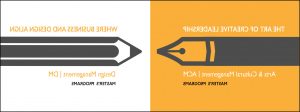 Science fiction creates visions of far-distant futures where teleportation and droids are the norm. With the Qualcomm Tricorder X PRIZE, one of science fiction’s most impressive devices is about to become a reality. The medical tricorder of Star Trek is a non-invasive handheld device used to scan, analyze, and diagnose patients. The need for such a compact and portable medical instrument for travelling through deep space is obvious (at least to sci-fi fans). Now imagine the benefits of such a device – not in the face of subspace anomalies – but in the wake of a natural disaster, a state of war, or in a community lacking access to sufficient healthcare services.
Science fiction creates visions of far-distant futures where teleportation and droids are the norm. With the Qualcomm Tricorder X PRIZE, one of science fiction’s most impressive devices is about to become a reality. The medical tricorder of Star Trek is a non-invasive handheld device used to scan, analyze, and diagnose patients. The need for such a compact and portable medical instrument for travelling through deep space is obvious (at least to sci-fi fans). Now imagine the benefits of such a device – not in the face of subspace anomalies – but in the wake of a natural disaster, a state of war, or in a community lacking access to sufficient healthcare services.
Through competitions past, the X PRIZE has stimulated R&D in oil spill cleanup, automotive technology, genome sequencing, and space travel as part of a mission to bring about “radical breakthroughs for the benefit of humanity.” This time around, the X PRIZE Foundation and Qualcomm Foundation are seeking to revolutionize healthcare by placing it in the hands of individuals, quite literally. As Chairman and CEO of the X PRIZE Foundation, Dr. Peter H. Diamindis stated at the competition’s announcement at the 2012 Consumer Electronics Show,
The Qualcomm Tricorder X PRIZE will incent the creation of technologies that can empower the consumer with the ability to decide when, where and how to seek health information and care.
The winning design will be determined by the accuracy in which a mobile platform can diagnose a set of 15 diseases across 30 consumers in three days. The tricorder must also deliver the information to the user in real time via an easily understandable interface that displays blood pressure, respiratory rate, temperature and other critical health metrics. A $10 million incentive will fund the winning design.
Science fiction has predicted many technologies that have made life more convenient in today’s world. The prospect of a medical tricorder, however, goes beyond convenience. It will allow users to assess health conditions without the need of a healthcare provider, saving consumers expenses of doctor’s office visits prior to need for medical treatment. For sophisticated healthcare facilities, the tricorder will enable space-saving and more energy-efficient operations; and the reduced need for heavy machinery and sterilized labs could bring vital diagnostics systems to parts of the world where little healthcare infrastructure exists. If a successful tricorder results from the X PRIZE competition, we won’t have to wait until the 24th century for such a world-changing advancements in healthcare.
via Triple Pundit




